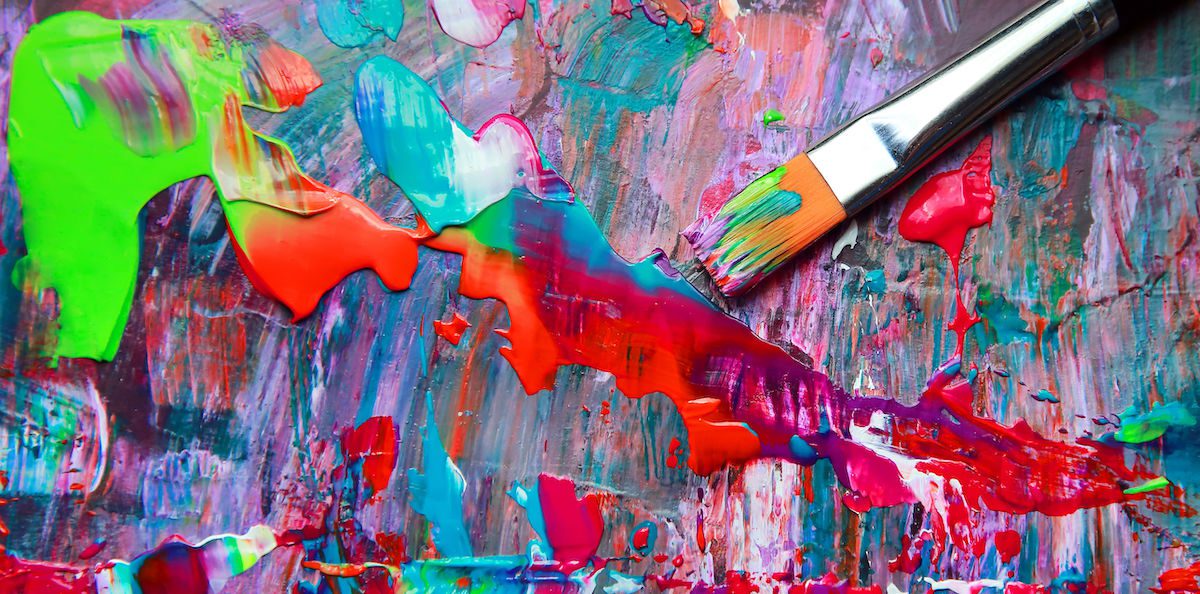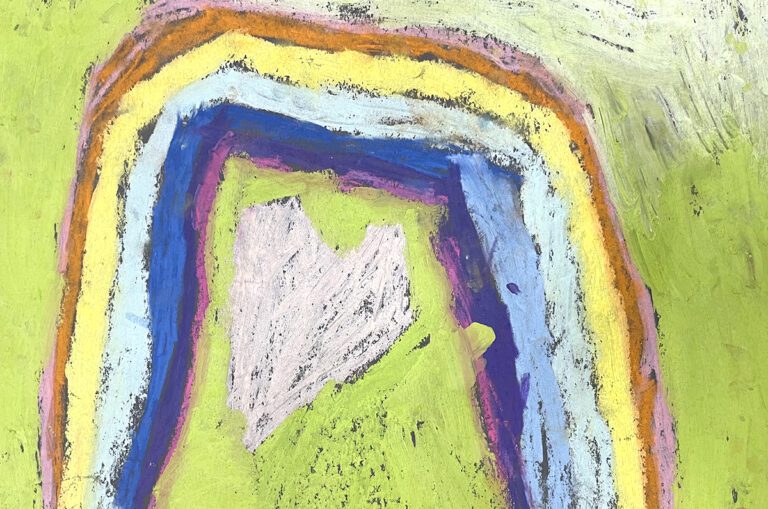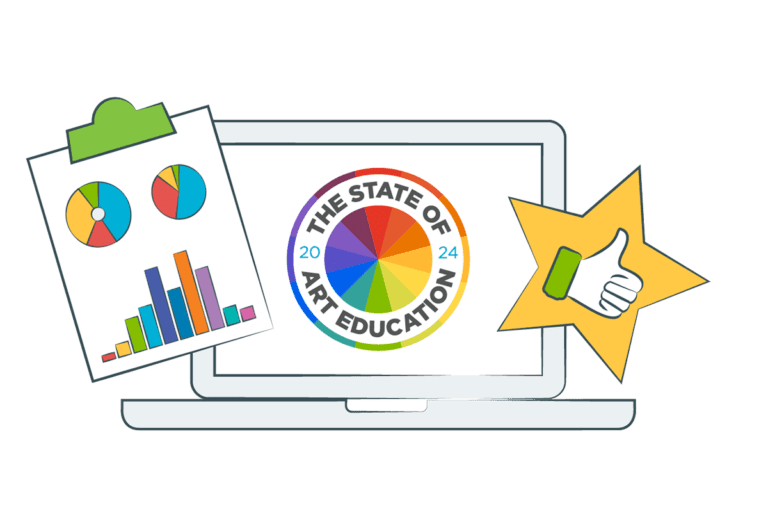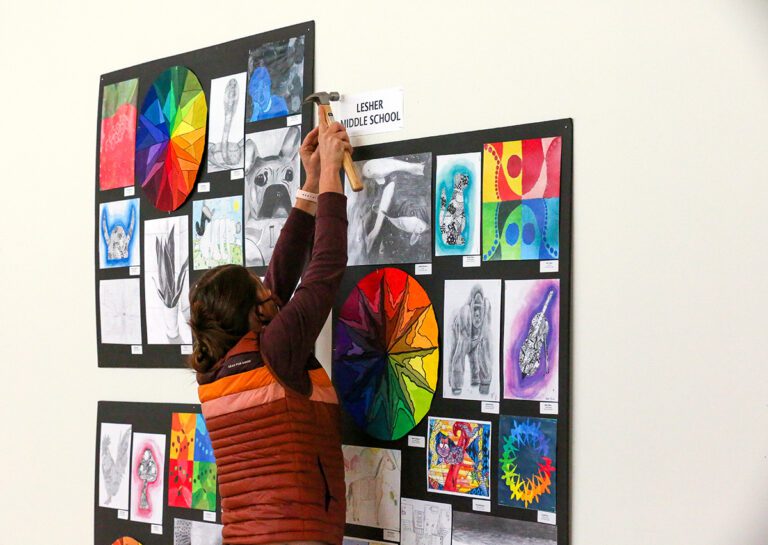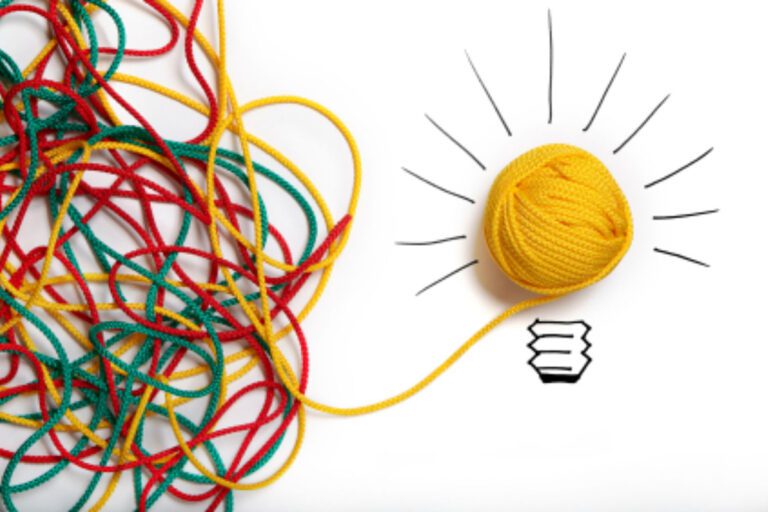Teaching art is awesome. Most likely, if we weren’t teaching this subject, we wouldn’t be teaching at all. Yet, why is it that when others, whether it be students, parents, or colleagues, find out we’re art teachers, there’s a set of pre-conceived ideas? There doesn’t seem to be a stereotypical perception of math or science teachers. So, why is it that art teachers find themselves being stereotyped all the time?
Some art teacher stereotypes can actually be considered a compliment. But, there are certain things we hear over and over again that are just plain annoying. Instead of dwelling on the frustrating comments we seem to hear continually, let’s look at how we can respond positively.
9 Annoying Things People Say When They Find Out You’re an Art Teacher
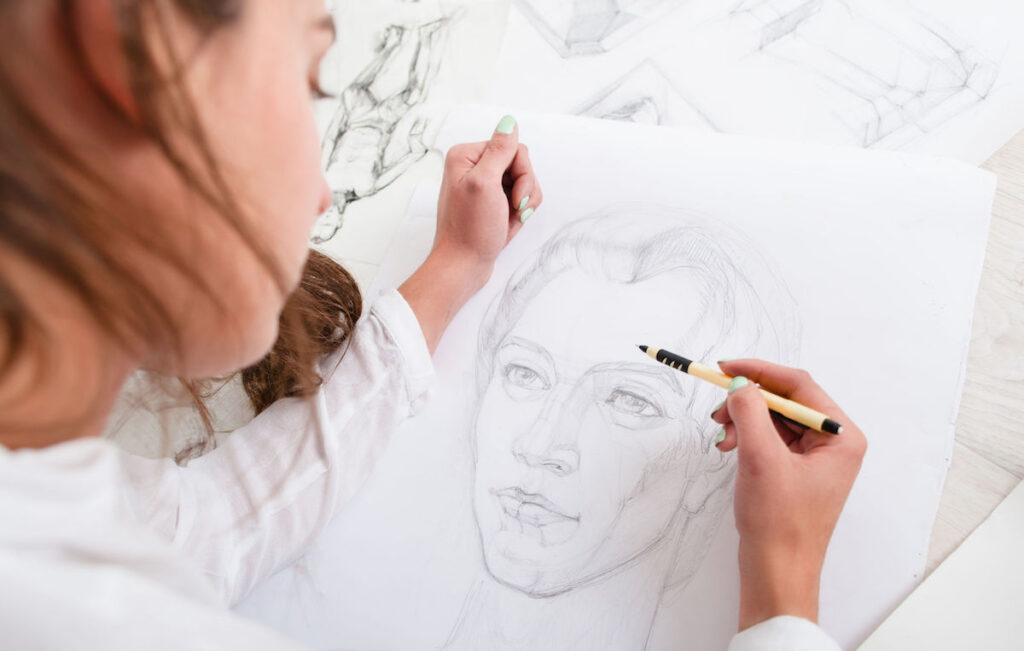
1. “I can’t even draw a stick person.”
How many times have you sat down at parent-teacher conferences to hear this statement? Or after discovering you’re an art teacher, this is the first comment that someone feels inclined to share. It’s annoying, to say the least because we know this is entirely untrue. Instead of dwelling on it, seek to inform. You might respond by explaining that many students come into your class, doubting their drawing skills, and it’s never too late to get better. Drawing is, in fact, a skill that can be learned. Although it’s often viewed as a natural talent, explain how, with practice and specific drawing strategies, anyone can master the skill. It’s what we teach our students every day!
2. “Did you have to go to school to become an art teacher?”
This question can come off as ignorant and just plain rude. But, instead of reacting out of frustration and anger, try explaining it instead. Explain that yes, all teachers (some states might differ) are certified staff, which requires a bachelor’s degree. In fact, the coursework required of an art teacher is quite demanding as not only the background in education is required, but art teachers must also know about different media. If you can follow it up with other credentials such as having your master’s degree, Ph.D., or Ed.D, they’ll know not to ask again.
3. “You’re an art teacher? The clothes make sense now.”
You never hear anyone say, “You are totally dressed like a history teacher,” yet, our style choice always evokes comments. Unlike many, we see fashion and style as a form of expression. Sure, we can probably get away with wearing certain things because we are the art teacher. But, at the end of the day, whether your wardrobe is a palette of neutral colors or rainbows everywhere, art teachers wear what makes them feel original! Style and fashion are extensions of who we are, so we will do what we want.

4. “How can you even grade art?”
Assessments exist in an art classroom, just like they exist in any other class. Why one assumes this doesn’t include the art room won’t ever make sense. We can simply explain that art teachers use assessment tools and rubrics to grade particular concepts and criteria. Grading art is certainly not subjective because our students have national and state standards they are to meet.
5. “Sounds fun; you just get to play all day!”
Yep, we do! Can you sense the sarcasm? Teaching art is fun, but every art teacher encounters less than desirable tasks we must complete. No, it isn’t fun to prepare materials for hundreds of students a day. Would I rather be spending my time doing something other than using the paper cutter to cut 500 pieces of paper? Probably. Do we wish the art room magically cleaned itself? Absolutely! We’re not trying to complain, but all the “fun” we orchestrate takes a lot of behind the scenes work.
6. “Why do you need a budget for art?”
If you’ve worked in a school long enough, you’ve probably been exposed to the teacher chatter and drama. Honestly, teachers are the biggest gossips. But, during conversations like this, it’s often interesting to discover how much budget money each department gets. It can be frustrating to discover that a class with no consumable resources or current textbook adoption gets more money than the art program. An art room’s curriculum relies almost solely on consumable materials, which is exactly why we need a budget. It’s frustrating to have to ask for more money, but here’s a resourcethat can help.
7. “Do you have to make lesson plans?”
Sure, art teachers are flexible and create magic almost out of nothing. But, once again, art teachers have a curriculum they must teach. The next time someone asks you this question, ask if they’d like to take a look at the state or national standards you use. They probably won’t ask again.
8. “I’m an artist, too.”
That’s awesome; we’re so glad you’re taking the time to create! With every latest craft trend comes a budding new artist. While we’re genuinely happy people are taking the time to make, it does become frustrating when others equate their craft knowledge learned via YouTube to the traditional art training many art teachers have.
9. “Well, art isn’t as important as other classes.”
It’s shocking that in this day and age, we still have to advocate and justify the importance of the arts. Nonetheless, we do. To field this annoying comment, come prepared with research-backed ways that show the importance of art education. You might also want to inform others that art is a core subject and has been since the early 1990s when the America 2000 education plan was put in place.
Maybe a time will come when art teachers don’t have to defend what they do and advocate for their programs. One can only hope. Many of these comments we’ll probably hear until the end of time, but we art teachers know the truth. The next time you find someone asking an annoying question, remember to answer it in a way that will inform so they hopefully never ask it again.
What’s the most annoying thing people say to you when they find out you’re an art teacher?
How do you deal with comments like the above?
Magazine articles and podcasts are opinions of professional education contributors and do not necessarily represent the position of the Art of Education University (AOEU) or its academic offerings. Contributors use terms in the way they are most often talked about in the scope of their educational experiences.
